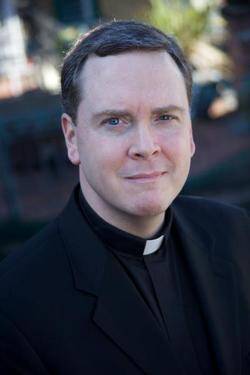From the third-floor corner balcony of the Gran Hotel Ciudad de México, I enjoyed a panoramic view of at least seven centuries of human history. From the ghostly ruins of the Templo Mayor, to the Baroque splendor of the 16th-century cathedral, to the mammoth Palacio National, from which a vast swath of North America was once governed, this teeming, cacophonous square in the heart of Mexico’s capital tells the story of several empires won and lost: the Aztecs, the Spanish and the French. The successive imperialists who built this place, like their Roman or British counterparts, no doubt thought that each of their earthly paradises would last a thousand years or more. Such is the hubris of earthly schemers.
I had come to Mexico City to interview the new apostolic nuncio to the United States, Archbishop Christophe Pierre, a French-born career papal diplomat who had just completed nine years as nuncio in Mexico. Popes have traded ambassadors with the world’s major powers since at least the Middle Ages; in that sense, the news that Pope Francis had selected a new man to represent him in Washington, D.C., was hardly news at all. What makes the archbishop’s arrival newsworthy is the fact that the United States of America presently bears the mantle of global leadership; we are, for good or ill, the successors of the Aztecs, the British and the Spanish. As the archbishop reminds us in the interview reported in this issue, the United States is the pre-eminent power in the world today. Every aspect of life on earth is affected by our actions, noble or otherwise. The people of Mexico know that reality in a way few others do, for the destiny of our immediate southern neighbor is especially intertwined with our own. In such an intimate relationship, as President Obama has said, there should not be “a senior partner or junior partner. We are two equal partners, two sovereign nations that must work together in mutual interest and mutual respect.”
It will be useful, then, to have as the pope’s representative to the United States a man who has experienced the U.S.-Mexico relationship from the other side of the Rio Grande, someone who can help us understand what it might mean to build a wall between us. It will also be useful to have in Washington a diplomat who represents the vicar of Christ, the one who breaks down walls; the one for whom charity, reconciliation and justice are the only standards of human action. “Basically, when you listen to the Gospel,” says Archbishop Pierre, “when you follow Christ, Christ is asking you to be very radical. Christ is asking us to be close to the people, to be close to the poor.”
Such radical closeness requires actions that are the very opposite of building walls. We should also bear in mind that the American empire, like the Aztecs and the Spanish before us, will one day go the way of all things mortal, that we too will be judged at the bar of history. More important, the King of Kings himself, the only one who can rightly claim to reign forever and ever, will also call us to account for our actions. “Christ is not an idea,” says Archbishop Pierre. “Christ is a person who came and offers us the Gospel…. The values of the Gospel are not ideas. They are behaviors. We know from experience that this is quite demanding.”
The view from the Gran Hotel appears to confirm that fact.
•••
This special issue on the Bible and the family has been generously underwritten by the American Bible Society as part of our continuing series, “The Living Word: Scripture in the Life of the Church,” a multiyear, multiplatform joint project of America Media and A.B.S. to promote deeper popular engagement with the Bible. We are deeply grateful for their friendship and support.








